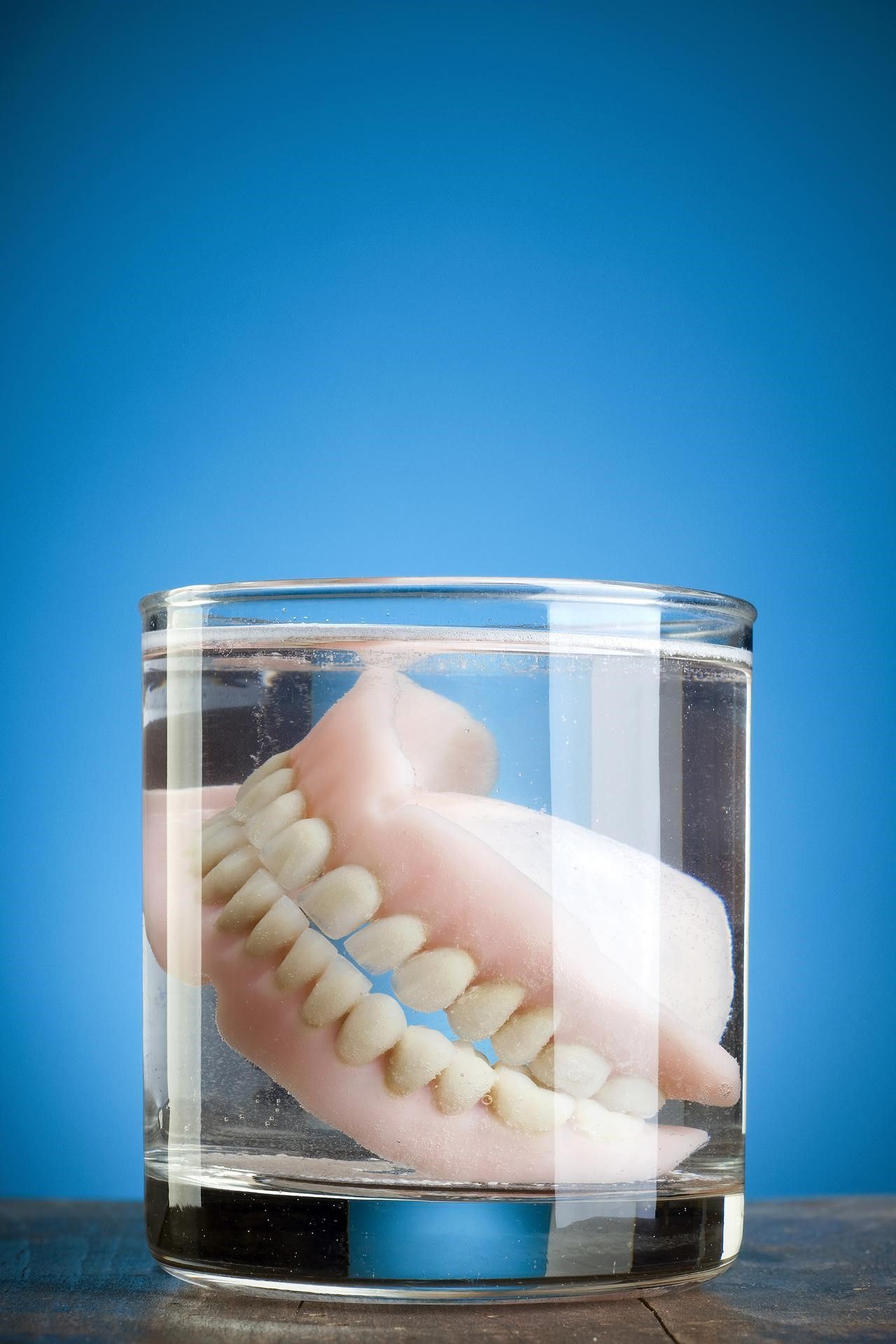5 Denture Maintenance Tips

Dentures are a standard dental procedure for missing teeth. The treatment restores oral health and improves the smile. The benefits of dentures make them a popular choice, especially among adults.
However, dentures' effectiveness depends on compliance with the recommended maintenance guidelines. Failure to observe essential care guidelines increases the risk of damage and oral health degradation. This post highlights maintenance tips to keep dentures in good condition and improve oral health.
1. Soak Dentures Overnight
Dentures are removable, which allows for easy and regular cleaning. In particular, dentures must stay hydrated to prevent cracks or warps and preserve their shape and fit. Therefore, place dentures in clean water overnight to retain flexibility.
However, place the devices in a denture cleanser before transferring them into the water for an overnight soak. A cleansing solution kills bacteria and loosens possible stains. Remember to rinse dentures in the morning before re-inserting them in your mouth to avoid any side effects. Additionally, follow the dentures manufacturer's guidelines on the correct soaking procedure to prevent damage since some solutions react with plastic.
2. Store Dentures in Water
Patients can remove dentures during the day to give the gums a break. However, some people leave their dentures in the open, exposing the devices to bacteria and damage by kids and pets. Thus, you risk catching an oral infection or injury by wearing exposed or ruined dentures.
Put dentures in water whenever your mouth needs a rest. The water prevents the plastic from drying and hardening, which preserves comfort. Additionally, store dentures in a designated place to avoid damage by kids and pets. Furthermore, handle wet dentures carefully when taking them out of storage to prevent slips and falls.
3. Rinse Dentures After Meals
Patients can eat their favorite meals with dentures, which promotes a balanced diet. Consequently, some people brush their teeth after eating with their dentures still on. However, while brushing removes food remnants from the mouth, some particles remain lodged on the underside of dentures. Consequently, you can develop foul breath when different food particles mix.
Remove and rinse dentures after every meal to wash off food particles trapped behind the denture base. The process promotes fresh breath and clean, healthy gums. Use cold tap water since it is readily available and the temperature does not deform the devices. Place a towel on a sink to prevent damage if dentures slip and fall.
4. Scrub Dentures With a Soft-Bristled Brush
Stains and food particles might settle in the tight corners of dentures. However, a simple rinse might not remove all food fragments. Patients can use a brush to clean dentures, but the type matters. For instance, a regular toothbrush is not recommended since it can scratch the plastic and create hiding spots for bacteria.
A soft-bristled brush designed specifically for dentures is safe and effective. Scrub every part of the dentures lightly in a circular motion. Place a towel on a table to catch the device if it slips. Dry the brush when done, and store it in a case to prevent bacteria buildup on the bristles.
5. Schedule Regular Dental Checkups
Dentures are popular among patients with missing teeth since they restore oral health. However, the mouth structure changes over time, which affects denture fit. Additionally, tiny cracks might appear and affect effectiveness and comfort.
Delayed identification of denture defects might reverse the gains and adversely affect a patient's experience. Therefore, visit a dentist for regular checkups or whenever you notice abnormal denture changes to ensure timely identification of defects, professional cleaning, and gum health assessment.
Adequate dentures maintenance is essential for durability, effective treatment, and good oral health. Contact us for expert advice regarding various dental procedures, including dentures.
Eastland Dental Center
Address: 20960 Kelly Road Eastpointe, MI 48021
- Mon, Wed, Thu
- -
- Tue, Sat
- -
- Friday
- Closed
- Sunday
- Closed






